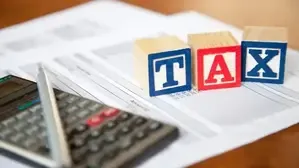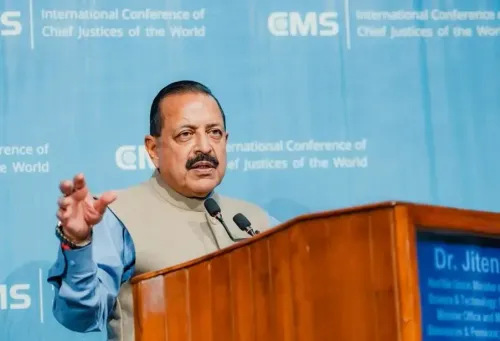What Does the Tax-free Limit of Rs 12 Lakh Exclude?

Synopsis
Key Takeaways
- The tax-free limit is Rs 12.75 lakh under the new regime.
- Standard deduction of Rs 75,000 applies.
- Capital gains are not included in tax-free income.
- Section 87A rebate is not applicable for special rate income.
- Taxpayers must be aware of their potential liabilities.
New Delhi, Aug 16 (NationPress) The government revealed in the Union Budget 2025-26 that earnings up to Rs 12.75 lakh, after considering a standard deduction of Rs 75,000, will remain tax-exempt under the new regime.
Nonetheless, taxpayers must understand that short-term capital gains and long-term capital gains tax are not included in the income amount eligible for this complete exemption.
The Finance Act, 2025, made it clear that the rebate outlined in Section 87A does not apply to income subjected to special tax rates. Hence, taxpayers cannot utilize the Section 87A rebate against tax obligations stemming from income taxed at special rates, including short-term capital gains under Section 111A or long-term capital gains under Section 112A.
Analysts have pointed out that the withdrawal of the Section 87A tax rebate benefit was enacted through an amendment introduced in Budget 2025, which should only be applicable from FY 2025-26 (AY 2026-27) onwards. Currently, the Section 87A rebate on special rate incomes is not being granted for FY 2024-25 (AY 2025-26), they noted.
For clarity, for AY 2025-26, taxpayers with total annual income up to Rs 7 lakh qualify for the Section 87A rebate under the new tax regime, while those earning up to Rs 5 lakh qualify under the old tax regime. In this scenario, a taxpayer's total income is calculated by omitting exempt income and applying allowable deductions, which include the standard deduction for salary or pension income.
Utilizing the Section 87A tax rebate for incomes up to the specified limits should ideally lead to a net tax liability of zero.
However, the current Income Tax Return utility does not allow the Section 87A rebate on taxes calculated for such special rate income for FY 2024-25. Therefore, individuals with a total income below Rs 7 lakh might still face a tax liability if their income primarily derives from special-rate capital gains. Analysts are awaiting further clarification from the Income Tax Department on whether the law will have retrospective effect from FY 2024-25.









